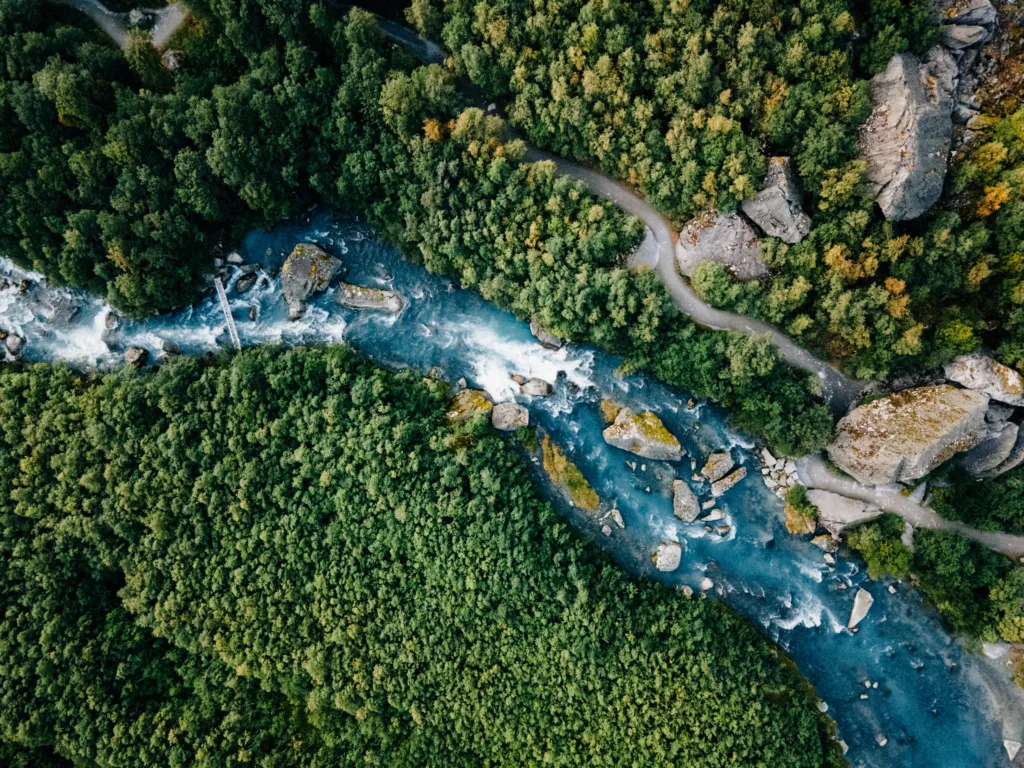
Jasper Smith is a first-generation wealth creator and tech entrepreneur who manages his wealth through Vala Capital, the sustainable venture capital firm he helped to found. His ventures include PlayJam, Playstack and Arksen, as well as being an early investor in Hutch. Jasper founded the charity 10 Percent for the Ocean in 2018.
Jasper is chairman of Vala Capital and has overall responsibility for the Vala EIS Portfolio deal flow and mentoring services.
What was the start of your impact journey?
I was very lucky – I was at the dawn of the games business in the UK and I had a big, early exit in the early 2000s. What tends to happen in those situations is that you flip very quickly from being a business owner to being an investor – probably without any training or any expertise in investment whatsoever.
My wealth journey was probably typical of many. I ended up investing huge amounts of money on things I did not understand and lost lots of it. But gradually, through that learning experience, alongside some like-minded individuals, I put in place a family office and tried to professionalise what we were investing in. I also realised there were two things I wanted to do: one was to build a platform that would allow me to continue to be entrepreneurial and invest in things I wanted to be involved with. Second, it had to be a platform that felt responsible and that I could trust myself with.
Did you always know you wanted to focus on sustainability?
Not at all. In the first 15 years of the family office, we invested pretty broadly into technology, media and manufacturing. Sustainability was not high on the agenda at all and was not a central thesis of our investments.
But about six years ago, I had a very personal experience on holiday in Greenland watching the giant glaciers calve into the ocean. My family had been very active in climate change and protest groups for many years. But this was the first time I experienced something as profound as seeing an ice-cap melt – and the water was cascading off it at an extraordinary rate, like Niagara Falls.
As a result of that and a few other key moments, we decided to upgrade what we did and make sure that every business that we invested in had either some form of other purpose or was aligned with our values. That is how Vala Capital was born in 2018 in partnership with my co-founder and managing director James Faulkner.
What is Vala Capital?
We call it a sustainability-based venture capital firm. We are a team of entrepreneurs that look to back, build and embolden start-up and early-stage UK companies that can have a positive impact in their markets and on society. Central to our philosophy is the desire for portfolio companies to become more sustainable, no matter what sector they work in. We typically hold around 30 portfolio companies at any one time. As they are often start-ups we may hold them for may be 10 years or longer. We invest in these companies ourselves. We also arrange these companies into enterprise investment scheme (EIS) qualifying Funds to enable outside investors to participate in a diversified portfolio and get the benefits that EISs provide to offset the risks of early-stage investing.

How did you start finding and selecting businesses through a sustainability lens?
Our initial approach was not as sophisticated as it is now! We mostly started looking at manufacturing and other big carbon-emitting industries and asking what would be better in those sectors?
We also started looking at companies with different approaches to marketing. So instead of being product-led, a company might be planet-first led. Arksen is a really good example of that. It is a marine adventure company that uses sustainable materials to create these amazing boats that allow people to go and explore some of the wildest places on the planet. But it is also working to develop the world’s largest private network of research-capable vessels to support marine scientists in ocean analysis and conservation.
We quickly decided that investment had to be conditional on a business delivering real change, on providing reportable impact and on the overall output of that business being more positive than negative. Where we are very lucky is that we deal with the earliest-stage, most embryonic ideas so we can make all capital conditional on a set of inputs and outputs. We can make organisations purpose-built in order to be sustainable, to think about future values, and we can limit our capital completely to companies that are willing to comply with that framework.
It sounds like you made the decision to go down the impact route fairly quickly – what were the ramifications for your family and your colleagues?
Children are a great catalyst to do stuff. My three kids were with me when we saw the ice glacier melting off Greenland and they were even more affected by what we saw. So, getting the family on board with this approach has been very easy.
The organisational piece has been interesting. My co-founder James was into an impact approach from day one. But some people responsible for allocating capital to venture capital were quite worried because there was a perception that to invest for impact meant no profit – or slower profit. Vala’s main mission, from a marketing perspective, is to demonstrate that impact and return are aligned.
It is not always the smoothest journey. Any business transition has that moment of inflection, but it was pretty easy to manage. Now we have gotten to the place where everyone at Vala Capital wants to make sure that our for-profit capital is accountable, not just in terms of the returns it can make but across a whole series of metrics.
Has that presented any challenges in terms of balancing impact against investment return?
The biggest challenge is getting everyone to understand what the economic pathway looks like when you invest for impact. For example, it is very easy to get the investment committee of an EIS to sign off on an investment in a software-as-a-service (SaaS) company that has ‘x’ number of subscribers and therefore has an exit value of 20 times invested cash.
It is much more difficult to get an IC to agree to invest in an SaaS platform because it helps to measure CO2 input/output on a building site – even though that is really valuable.
We have discovered that a lot is down to language. If you say “It is a sustainability platform that measures CO2 in the building industry”, people may not be that convinced. But if you say “It is a platform that helps building sites become much more efficient in their reporting”, that becomes more attractive.
What we have learned is do not make sustainability the reason for investing, even if it is core to your mandate. We invest in companies because they are great businesses, first and foremost. We have discovered that investors are not interested in sustainability as an asset class – they are only interested in it as an intrinsic part of a business.
Organisationally is there anything you have done that has made it easier for people internally to embrace a sustainable approach?
Operationally, the biggest step has been investing in and supporting the development of Future Plus, the sustainability management and reporting platform launched by The Sustainability Group, one of our portfolio companies.
Future Plus provides a highly formalised, data-driven way for companies to understand, measure, evidence, and report on their sustainability impact and goals. That has removed a lot of the complexity of deciding where to invest because the answers it collects are generally binary: “Have you got this or not?”; “Are you this or are you not?” It gives us a very good starting point for deciding whether a company, its people, its products, and its strategy will fit with our approach.
Also, we have been closely involved in Future Plus’s development. So people at Vala Capital feel a real sense of ownership and pride towards it because it really has helped to change approaches to sustainability in businesses and the venture capital industry.

How do you play back you experiences from Vala back to your other capital markets investments in the family office?
We manage everything through Vala Capital including a small amount of money in capital markets. One of the great challenges of suddenly having a lot of money is that you get bombarded by people inviting you to invest in things, which can feel very exposing. Vala Capital provides useful protection against that and means I always have a team to speak to about any investment decision.
Also as a serial entrepreneur, using Vala Capital as my family office means I am constantly having to vet my own ideas – why I am passionate about something as a business, what the business plan is, how much capital it requires. And that process of interrogating every decision is really important for me.
Have you had to modify how you think about financial performance in an impact-led framework?
Money is really stressful so it is almost easier to handle if you are not just focused on capital returns. Whether our ‘planet-first’ investments have done better or worse than equivalent ‘profit-first’ ones, I am not sure. We are quite happy with the results we have achieved. My outlook is that ALL investment should be conditional on delivering sustainable change. That does not feel limiting to me. In fact, it feels like an enhanced investment strategy that allows a business to continue to trade and grow.
What would have been helpful to you when you started this journey?
A big hurdle has been the scarcity of capital allocated to this space. There has been relaxation in what pension funds can and cannot do – for example, the government encouraging 5% of pension fund allocation into unlisted equities and SMEs.
My hope is that every citizen will want some exposure to the revolution that is happening in the start-up world – because this is where you will find the innovators building the tools for electrification, redesigning how fabrics work, and rethinking the building and software sectors. The best thing that can happen is that pension funds are mandated to invest a certain amount into start-ups that meet certain criteria. That is the sort of policy change that could enable UK entrepreneurs to become world-class very quickly.
Are there any people that you think other high-net-worth investors should talk to?
Working with the Beacon Collaborative, which provides a community for philanthropists, was really useful for me. It felt like a safe space where I could meet really interesting people who had been on a similar journey to me.
Talking to other philanthropists about the work they are doing is always useful. I have also had a few mentors who have run major public companies who have quizzed me on my next move, which keeps me on my toes. Ultimately, being in the venture capital sector has felt like the best playground to try things out. And that is what is important about Vala Capital. We did not just want it to be about me or James. We wanted to build a network of entrepreneurs with the same values. I hope we have managed to do that.
